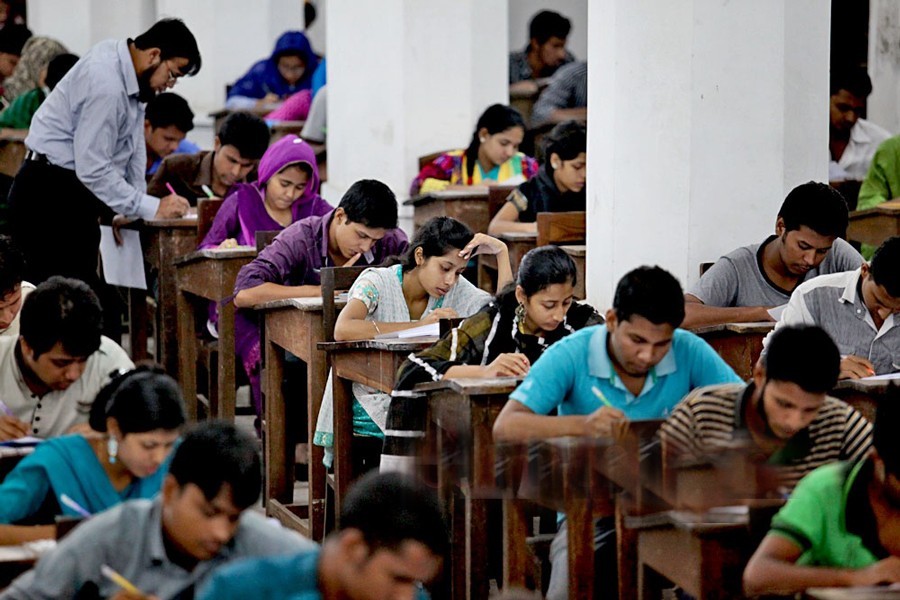The annual public examination of the secondary school completion starts today (February 02, 2018). It is generally considered the first and most important public test for students on the path to their tertiary education. This year around 2.57 million boys and girls are appearing for this critical test from different schools, madrashas and vocational institutions.
The country's education boards conduct the Secondary School Certificate (SSC) examinations for the mainstream students. At the same time the Bangladesh Madrasha Education Board conducts Dakhil examination for those who are appearing from Islamic religion-oriented institutions. Again, Bangladesh Technical Education Board is responsible for conducting SSC-equivalent vocational examinations for both regular and Dakhil categories.
Every year, the number of examinees of these tests is increasing. Thus the challenge of conducting the exams smoothly is also growing. Due to drastic change in syllabus and test methods in the last decade, the current SSC examination has little similarity with those conducted in 30 or even 20 years ago. But how far the overall quality and standard of examinations has improved is not clear. While copying has reduced significantly, allegation of question paper leak and cheating with digital devices has sparked debate on the efficiency of the exam management.
Besides, there are some other areas that also need some attention to make the examination less stressful for students and guardians and also citizens. During the exam days, daily lives of hundreds and thousands of people, especially in Dhaka, get affected. But little efforts are there to address the matter.
Chaotic road traffic thanks to inadequate public transport puts students, guardians and teachers under severe mental pressure on exam days. How and whether they will reach exam centres on time is the utmost concern, particularly in Dhaka. Thus a large number of students subjected to mental agony immediately before their exams.
Prolonged routine is another thing that needs some revision. Gone are the days when students could complete four exams in three days. In the inaugural day, first and second papers of Bengali examinations were held with a tiffin break at midday. Similarly, after one day interval, both papers of English exam also took place. Thus students became relived as almost one-third of their examination were completed. But the present practice is to drug exams even with one day interval for first and second papers of English examinations. Students these days don't know what a pleasure it was to assemble school fields for light lunch and chatting with mates between two exams on a day! In fact, reintroduction of single-day exams for two papers of Bengali and English with one day interval in between will save at least two additional hectic days for students, guardians, teachers and others concerned.
Another disturbing thing is a visit to exam centres by ministers and local administrative officers with media people. While a visit by education minister to a few exam centres is a long practice, presence of media and other people like local political leaders need to be checked. Irresponsible movement of TV camera crew in examination halls is bound to disrupt attention of examinees. No television camera and journalists should be allowed in the exam halls. Limited still photography may be allowed but from outside of the hall. The minister and senior officials may visit any centre but refrain from entering any hall. The incumbent education minister and her team may seriously thing of this to set an example.


